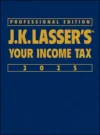No Education Credit without Substantiation
That’s what one taxpayer learned from the Tax Court (Toni Harris, TC Summary Opinion 2018-12). The taxpayer was a Walmart employee enrolled as an undergraduate student at a state college. She registered for 12 credits, but had to withdraw due to a family medical emergency. The Form 1099-T that she received from the college showed the amount billed for tuition and “0” total payments by her. Still, she claimed the American opportunity credit on her return. On Form 8863, she listed her expenses as tuition, a laptop computer, books, and other supplies.
The IRS disallowed the credit and the Tax Court concurred with this action. Although these are the types of expenses that could qualify for the credit, she failed to provide any support for her claim that she paid them, other than her uncorroborated testimony. She didn’t provide any canceled checks, credit card statements, bank account statements, account statements from the school, or any other document that shows that she paid any of the qualified tuition and related expenses shown on the Form 8863.
Capitalization
Adding a cost or expense to the basis of the property.



